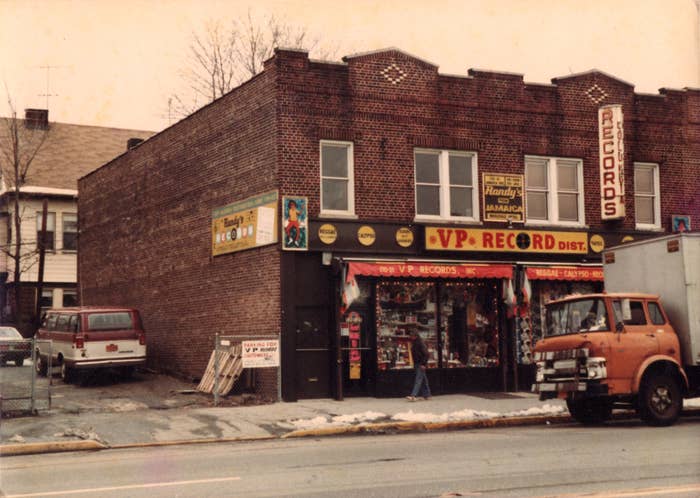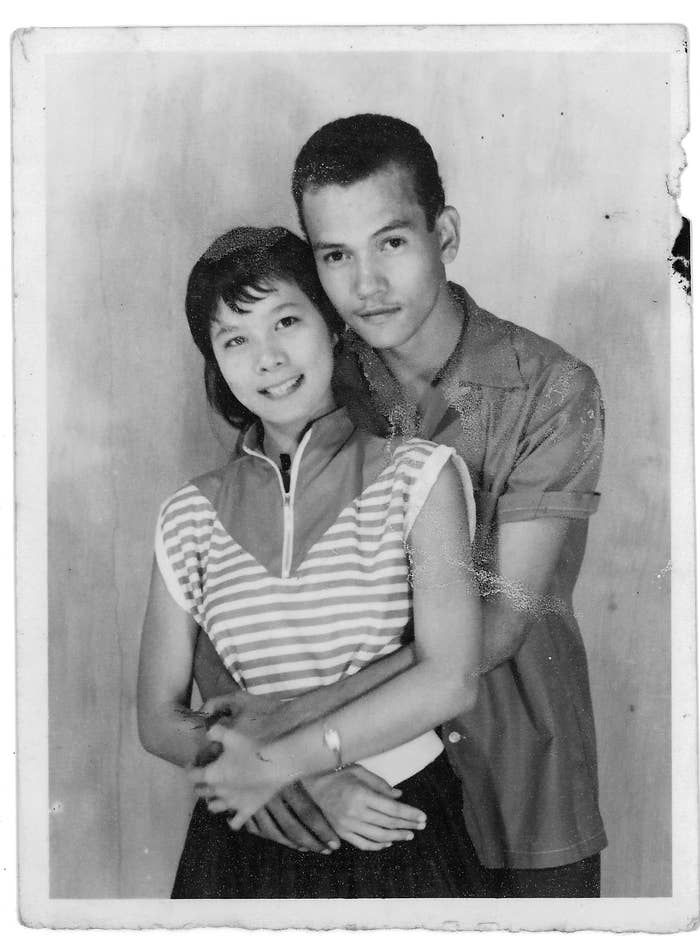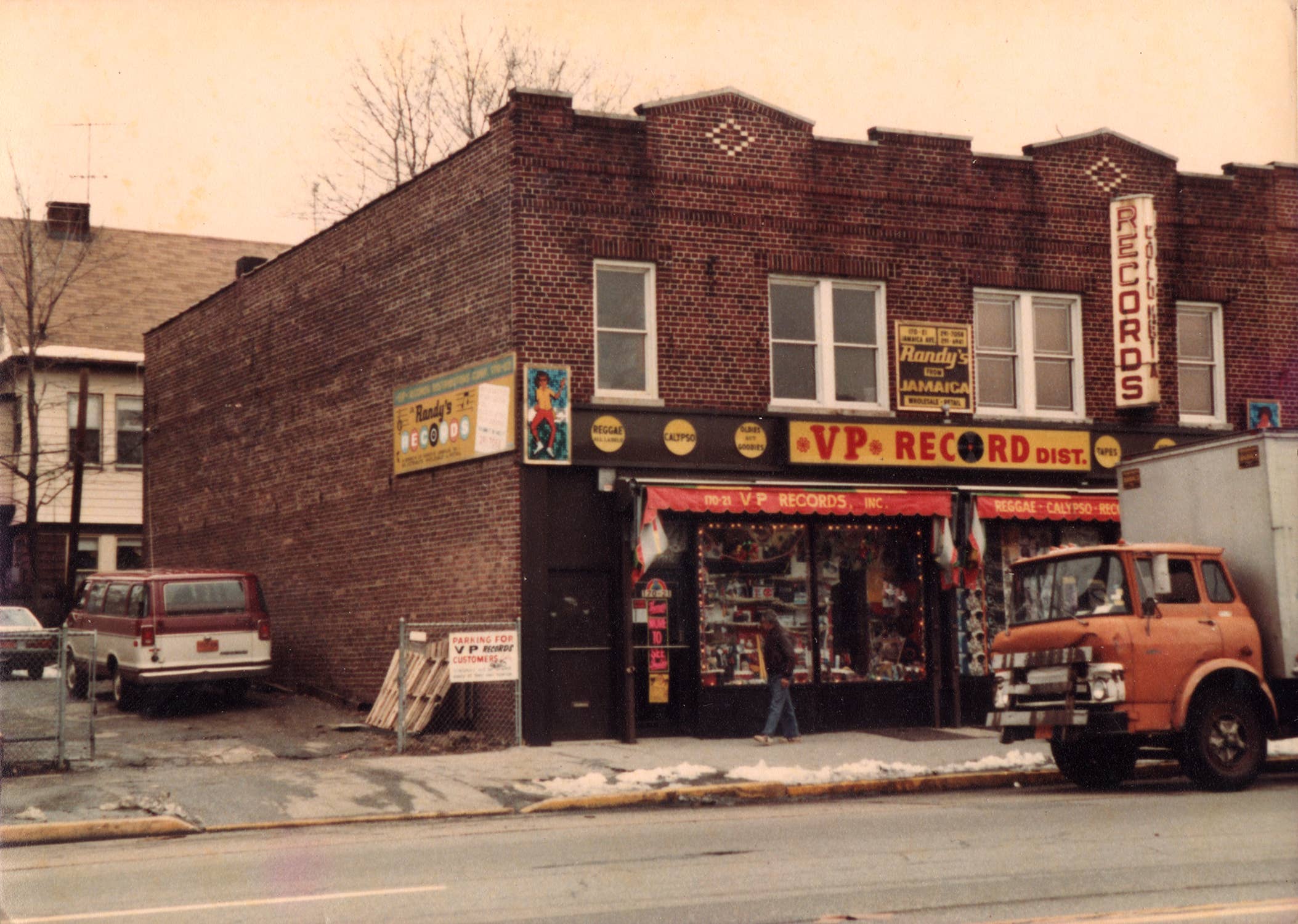
I honestly couldn’t tell you how many reggae and dancehall mixtapes I listened to during my childhood years. The burned CDs—with their sometimes glitchy skips, boisterous sound effects between transitions, and loud air-horns—were one of my two connections to keeping abreast of current music in Jamaica. The other was a radio segment on the Toronto-based, shut-down-only-to-be-revived Flow 93.5 that gave our hometown hero, DJ Spex, a three-hour slot to serve up his dedicated listeners a divine mix of reggae and dancehall each and every week.
As more mixtapes came in and out of my CD player, one was a mainstay: VP Records’ Reggae Gold compilation album. I memorised the order of the tracks, sung along with the artists, and spun the CD countless times until the next release. Before I was even a conception, borne of a night scored by ‘80s lover’s rock, VP was synonymous with all things reggae—not only in what it represented for Jamaican music and culture, but because they had successfully figured out the formula of delivering the sounds to an international audience.
It all started in 1979. Four years prior, Patricia Chin and her late husband, Vincent “Randy” Chin, moved to New York City from Kingston, Jamaica, to open up VP Records’ original brick and mortar location in Brooklyn before relocating to Queens. The migration proved to be a pivotal moment as they quickly became the source for wholesale distribution of reggae music. Since then, VP has left an international impression on the music industry at large—a household name that has largely contributed to the global rise and spread of Jamacian music. The mid-2000s straight through to the 2010s saw an uptick of dancehall and reggae seeping into mainstream consciousness. Artists such as Elephant Man and Sean Paul, both of whom were signed to VP, were taking dancehall to unprecedented heights all over the world, with catchy dances made in the dance-halls back in Jamaica. Not only that, the label has expanded its sound through signing artists like Estelle and curating a delectable selection of soca tracks by way of their annual Soca Gold compilation CDs.
2019, however, was especially important as it marked VP Records’ 40th anniversary. The label hosted pop-up events all over, including a massive interactive installation sharing its history at Montego Bay’s Sangster International Airport; a concert named after their Strictly The Best CD set, which was held with live watch parties in New York and London; and of course their annual Jerk Fest in NYC, which doubled up as their 40-year celebrations down at Central Park. Then, over in London’s Kensington, the A Reggae Music Journey exhibition was held at the High Commission of Jamaica, before VP released the Down In Jamaica box set: an anthology of the label’s records that propelled reggae and dancehall music forward.
Though they pay close attention to the changing tides of Caribbean music and culture trends, VP Records’ passion for authentic dancehall and reggae has never waned, and it shows because they are now the world’s largest independent record label. We caught up with current president Randy Chin—son of Pat and Vincent Chin—to reflect on the label’s 40-year legacy.

COMPLEX: What does revolution and reinventing mean for VP Records?
Randy Chin: I think it really starts with having a very entrepreneurial spirit. That’s the first thing: having that entrepreneurial mindset where, when things change, you can change and evolve with it and not be stuck. Initially, we just sold records, and we built a recording studio that did a little distribution and made the decision to move to the US. The music has changed all throughout that time. From roots reggae to dancehall, it’s really been following the music as it evolves. One of the things that’s changed in the last ten to fifteen years, is this tremendous upheaval that’s happened because of technology. Back in the early 2000s, when the whole decline in the CD business occurred, it was seeing that and understanding what was going on, and even if you didn’t quite understand, you knew that there were changes to be made. So you had to change the whole infrastructure of the company and really start embracing the download business. I think the lesson is that you need to move with the marketplace, and you can’t be afraid.
I agree with what you said. A part of it is being responsive to the changes and to the changing industry. In the short term, within the next five years, are there any plans to change, respond or appeal to a more younger, tech-driven audience?
So the big overarching trend that’s happening is the technology changing—so all of the different things that are happening with technology in terms of streaming, AI—it’s changing the way that consumers consume. With the streaming market, it’s a very young demographic, so we have to adjust in terms of the artists that we’re talking to and signing. At our Strictly The Best concert this year, you saw Chris Martin, Romain Virgo, Shenseea, TeeJay… It’s really looking at the A&R process and making sure that we’re affiliating ourselves with artists that are appealing to the young demographic.
What’s the A&R process at VP Records like today?
The philosophy is that music is predominantly a young person’s thing, so you need to pay attention to what young people are listening to. It’s just like, in the late ‘90s, dancehall started to surpass roots reggae. That was a process that we had to sort of pivot ourselves to say the more traditional sounds, like the Dennis Browns, that’s still going to be there and we need to embrace them but you also need to embrace the newer market. The philosophy of A&R today isn’t any different than when we started. How you find the artists now is different. There’s YouTube, there’s other sorts of social media, but a lot of it is also relationships. We’re in Jamaica all the time and working with some of the young producers on the ground, so it’s just about seeing what’s happening and keeping abreast of it.
What does it mean to have a legacy that’s spanned 40 years?
It feels really good. Taking reggae music that comes from Jamaica to all corners of the world, and have it be embraced and influence other music, is something that we’ve always wanted to see happen. A lot of labels, they do all kinds of genres and I think we’ve made a strategic decision that our focus is reggae. We’ve expanded a little bit, but we’re highly specialised.
What’s been your favourite moment? I know it’s hard to choose one, but what has been a pinnacle moment, or a moment that changed your perspective?
One of the highlights for me, certainly, would have to be the 25th anniversary of VP at Radio City. That was a big moment seeing the VP marquee on the side of the music hall. And then, obviously, the real big crossover success of Sean Paul was fantastic and just seeing how the music has expanded. One of our bands, Raging Fire, was nominated for a Grammy last year. They didn’t end up winning, but being there at the Grammys with them, enjoying the moment, that was also a big highlight.

